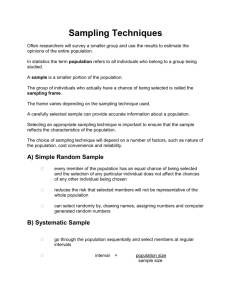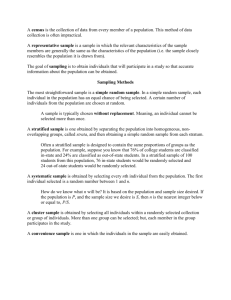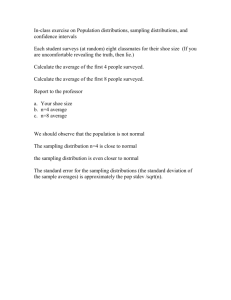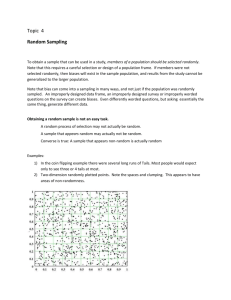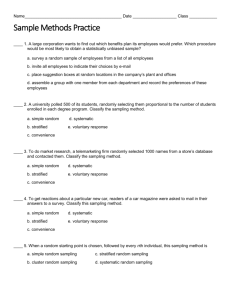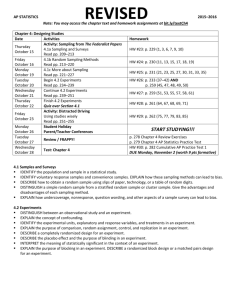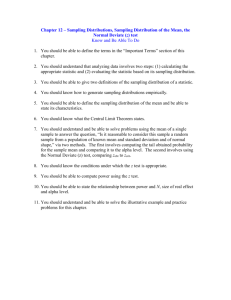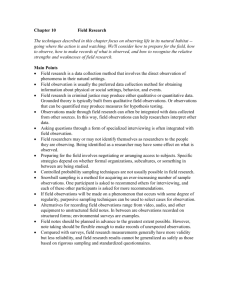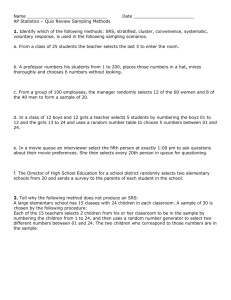Sampling Techniques
advertisement
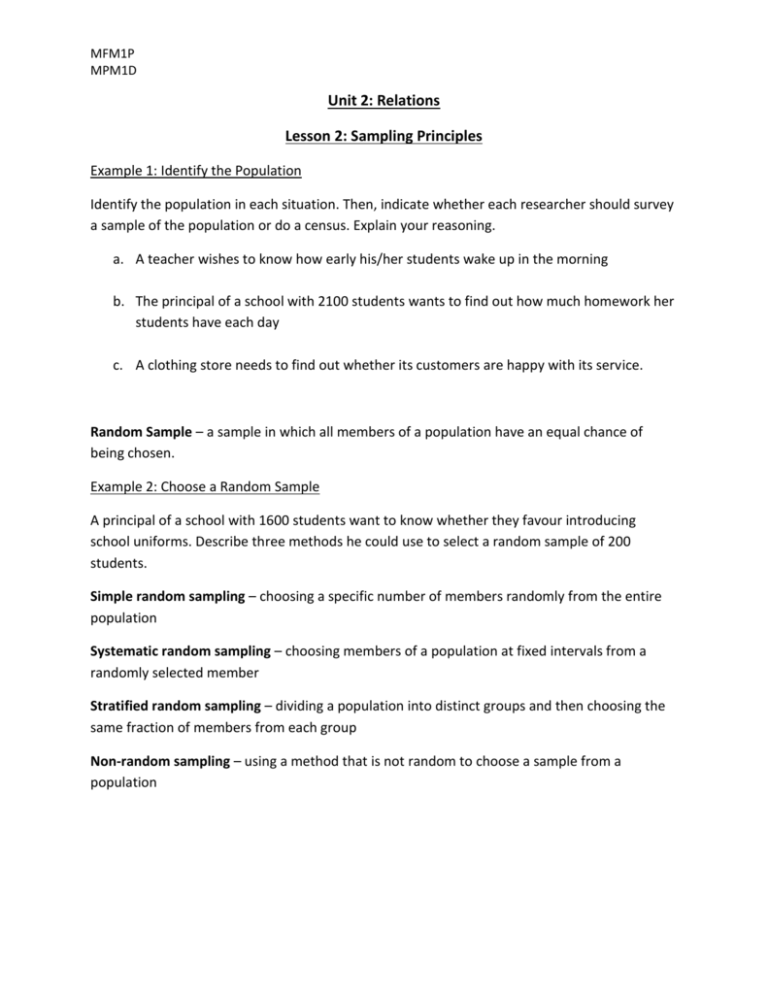
MFM1P MPM1D Unit 2: Relations Lesson 2: Sampling Principles Example 1: Identify the Population Identify the population in each situation. Then, indicate whether each researcher should survey a sample of the population or do a census. Explain your reasoning. a. A teacher wishes to know how early his/her students wake up in the morning b. The principal of a school with 2100 students wants to find out how much homework her students have each day c. A clothing store needs to find out whether its customers are happy with its service. Random Sample – a sample in which all members of a population have an equal chance of being chosen. Example 2: Choose a Random Sample A principal of a school with 1600 students want to know whether they favour introducing school uniforms. Describe three methods he could use to select a random sample of 200 students. Simple random sampling – choosing a specific number of members randomly from the entire population Systematic random sampling – choosing members of a population at fixed intervals from a randomly selected member Stratified random sampling – dividing a population into distinct groups and then choosing the same fraction of members from each group Non-random sampling – using a method that is not random to choose a sample from a population MFM1P MPM1D Example 3: Identify Sampling Techniques Identify the type of sampling in each situation. Explain any bias that samples could have. a. The personnel department sends questionnaires to 75 employees randomly selected from a list of everyone working for the company. Simple random sampling b. A computer randomly chooses one name from an alphabetical list of a store’s customers and then also selects every 25th person listed before and after that name. Systematic random sampling c. The president of a restaurant chain interviews employees at one branch. Non-random sampling d. The student council of a school randomly selects a number of students from each class. This number is proportional to the size of the class. stratified random sampling
